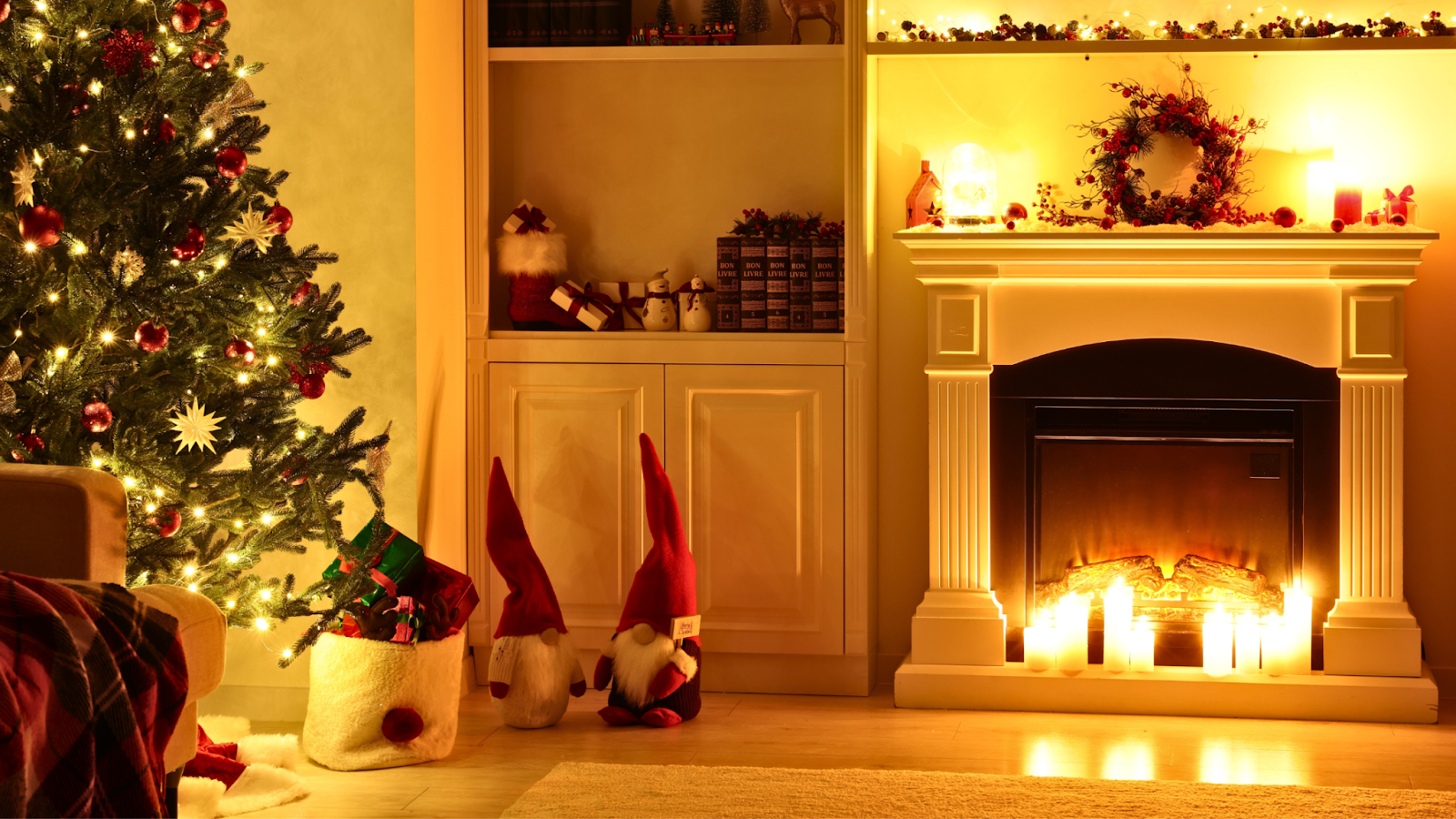‘Tis the Season to Decorate Safely
Christmas Magic is in the air! Festive lights are hung, trees are decorated, and the Christmas spirit is all around us. But, many of our most loved Christmas decorations pose a risk to our homes. Three critical hazards are candles, holiday lights, and Christmas trees. Read on for tips to keep your family and home safe this holiday season.
Candles
Candles are very popular, especially around the holidays. But candles also increase the risk of fire. If you are burning candles:
- Place them on a sturdy surface where they can’t be easily knocked over.
- Use well ventilated candle holders.
- Place them far away from flammable items such as decorations and greenery.
- Monitor candles closely and remember to blow them out when you leave the room or go to sleep.
- Trim candle wicks to prevent high flames.
- Take extra care when burning candles with more than one wick and avoid buying candles with multiple wicks that are close together.
- Do not use candles that contain lead in the wick(s).
- Help keep your family safe by testing your smoke alarms and practicing your home fire escape plan.
Christmas Lights
Christmas lights, both indoor and outside, are Christmas staples. But, they can easily start a fire when not handled with the necessary care.
- Always choose the right light for the job. Light strings and other decorations are rated for indoor or outdoor use. Ensure that indoor lights and decorations are only used inside and vice versa. Read the package instructions, and do not exceed the recommended wattage.
- Check all holiday light cords to ensure they aren’t frayed or broken. Don’t string too many strands of lights together.
- Don’t mount lights in a way that might damage the cords, and avoid using nails or tacks. Use hooks or insulated staples instead.
- Avoid plugging too many lights and decorations into an outlet; overloaded circuits can overheat and start a fire.
- Use Ground Fault Circuit Interrupters (GFCI) outlets when plugging in lights outdoors.
- Turn off all holiday lights and decorations when going to bed or leaving the house.
Christmas Trees
Christmas trees may be the most prominent holiday symbol, tall, beautiful, and unique to each home. Whether it be real or fake you need to take steps to ensure it is placed out of the way of traffic and does not block doorways. The tree should also be secure in a base or tied to the wall to ensure it can not fall over.
If your tree is artificial, make sure it’s labeled “fire resistant.” Fire-resistant trees are less susceptible to catching fire.
However, there is some more precaution that is needed for a real tree.
- Make sure the tree is fresh and keep it watered. To test if the tree is fresh, bend the needles up and down to make sure no needles fall off.
- A dried-out tree can catch fire faster than an adequately watered one. Check the water level every other day to ensure proper hydration.
- Place your tree away from fireplaces and heaters, and keep a fire extinguisher near your tree. Live trees are highly flammable due to needles and sap.
One last tip for our pet lovers, one of the most loved holiday plants, the poinsettia, is poisonous when eaten, so keep them out of reach of kids and pets!
We hope you have a wonderful and safe holiday season!
Related News
Recent News
Temporary Office Closure and System Maintenance – October 23–24th, 2025
As part of our exciting relocation to our newly renovated Head Office at 187 Kenmount Road, St. John’s, Munn Insurance will be completing a major IT and phone server migration this month. To complete this [...]
It’s Not Just Price: What Really Matters When Choosing Home & Auto Insurance
Let’s be honest — price is usually the first thing people look at when shopping for home or auto insurance. And that’s completely fair. No one wants to pay more than they have to. But [...]
The Real Costs of ATV Accidents on City Streets in NS and NL
We’re seeing a growing and concerning trend in communities across Newfoundland and Labrador and Nova Scotia: more and more people — especially youth — are driving ATVs, dirt bikes, and other off-road vehicles on public [...]












